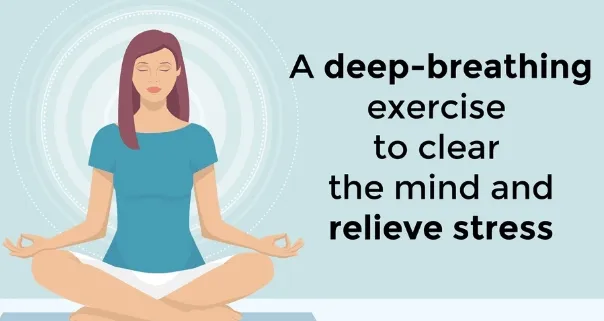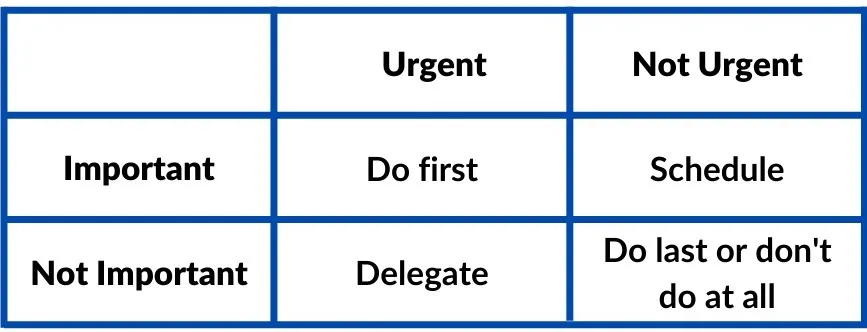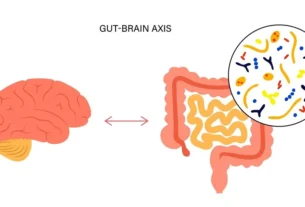In today’s fast-paced world, stress has become an unavoidable part of the daily routine for many busy professionals. Whether you’re juggling multiple tasks, facing tight deadlines, or dealing with demanding clients, stress can take a significant toll on your physical and mental well-being. Fortunately, there are several stress-reduction techniques that can help alleviate this pressure and improve your overall productivity.

In this article, we will explore 10 effective stress-reduction techniques for busy professionals that can be easily incorporated into your hectic work schedule.
1. Practice Deep Breathing Techniques
One of the simplest and most effective stress-relief techniques is deep breathing. Deep breathing exercises can quickly help reduce anxiety and lower cortisol levels (the stress hormone) in the body. Take a few minutes each day to practice slow, deep breaths in through your nose and out through your mouth. This helps activate the parasympathetic nervous system, promoting relaxation and reducing stress.
- How to do it: Sit in a comfortable position, close your eyes, and take a deep breath for a count of 4 seconds. Hold it for 4 seconds, then exhale slowly for 4 seconds. Repeat 4-6 times.

2. Prioritize Tasks with Time Management
Time management is crucial for reducing stress. When you have a long list of tasks, it’s easy to feel overwhelmed. Effective prioritization ensures you focus on what matters most. Tools like the Eisenhower Matrix can help you categorize tasks based on urgency and importance, making it easier to manage your workload without feeling rushed.
- How to do it: List your tasks and classify them into four categories: urgent and important, important but not urgent, urgent but not important, and neither urgent nor important. Focus on the first two categories first.

3. Take Regular Breaks (The Pomodoro Technique)
Taking short breaks throughout the day can significantly reduce mental fatigue. The Pomodoro Technique is a popular method that involves working for 25 minutes and then taking a 5-minute break. After completing four “Pomodoros,” you take a longer break of 15-30 minutes. This technique improves focus, prevents burnout, and enhances productivity.
- How to do it: Use a timer to work in focused intervals. After each session, step away from your desk, stretch, or take a short walk.
4. Engage in Physical Exercise
Physical activity is one of the most powerful stress-relief tools. Exercise releases endorphins, the body’s natural feel-good hormones, which help combat stress and elevate mood. Even a brisk 20-minute walk can clear your mind, boost energy, and improve mental clarity.
- How to do it: Try incorporating light exercise, such as walking, stretching, yoga, or jogging, into your daily routine. Aim for at least 30 minutes of moderate exercise most days of the week.

5. Meditation for Stress Relief
Meditation is a proven method for reducing stress and improving focus. It helps calm the mind and body, lowering blood pressure and reducing stress hormone levels. Even a few minutes of mindfulness meditation can create a sense of calm and help you regain control over your thoughts.
- How to do it: Find a quiet space, sit comfortably, and focus on your breath. If your mind wanders, gently bring it back to your breath. Start with 5 minutes and gradually increase the time.

6. Adopt a Healthy Diet
What you eat can significantly impact how stressed you feel. A poor diet high in processed foods, sugar, and caffeine can contribute to anxiety and stress. On the other hand, a balanced diet rich in fruits, vegetables, lean proteins, and whole grains can provide the nutrients your body needs to cope with stress.
- How to do it: Focus on eating whole foods like leafy greens, nuts, seeds, fish, and fruits. Avoid excessive caffeine and opt for water, herbal teas, or fresh juice to stay hydrated.
7. Get Enough Sleep
Sleep is essential for stress management. Lack of sleep increases cortisol levels, making you more susceptible to stress. Busy professionals often sacrifice sleep to meet deadlines, but this only exacerbates stress and decreases productivity. A well-rested mind is more focused, energized, and resilient to stress.
- How to do it: Aim for 7-9 hours of sleep each night. Create a sleep-friendly environment by keeping your room dark, quiet, and cool, and avoid screens before bedtime.

8. Connect with Nature
Spending time in nature is an excellent way to reduce stress and restore mental clarity. Research shows that nature walks or simply spending time outdoors can lower stress levels and improve mood. Nature’s calming effects can help reset your mind, making it easier to handle work-related pressures.
- How to do it: If possible, take a short walk in a nearby park or garden during your lunch break. Even stepping outside to get some fresh air can have an immediate calming effect.

9. Socialize with Colleagues and Friends
Strong social connections are vital for managing stress. Talking to friends, family, or colleagues can provide emotional support and perspective. Having a network of people who understand your challenges can make stressful situations more manageable and help you feel less isolated.
- How to do it: Schedule regular meetups with friends or colleagues outside of work. You could also join a support group or participate in team-building activities at work to foster a sense of community.

10. Practice Gratitude
Focusing on the positive aspects of your life can significantly reduce stress. Practicing gratitude shifts your mindset from what you don’t have to what you do. A daily gratitude practice can improve your mental health, promote optimism, and help you better handle stress.
- How to do it: Each day, write down three things you are grateful for. This simple practice helps train your mind to focus on the positives in your life, reducing stress and enhancing your overall well-being.
Conclusion: Stress Reduction is Key for Success
Stress is inevitable in any fast-paced work environment, but with the right techniques, it’s possible to reduce its impact on your health and productivity. By incorporating these 10 effective stress-reduction techniques into your daily routine, you can achieve a healthier work-life balance and perform at your best. Whether it’s through time management, exercise, or mindfulness, taking control of your stress levels will empower you to thrive in both your personal and professional life.
Make sure to start small and gradually incorporate these techniques into your busy schedule. Over time, you’ll notice a significant improvement in how you handle stress, leading to better mental clarity, improved focus, and overall well-being.
Final Tips to Maintain Stress Reduction:
- Consistency is key: The more consistently you apply these stress-relief techniques, the better your results will be.
- Be patient with yourself: Stress reduction is a journey. Some days will be more challenging than others, but every step counts.
With these 10 stress-reduction techniques, you’ll be on your way to managing stress effectively and becoming a more focused, productive, and balanced professional.
FAQs About 10 Effective Stress-Reduction Techniques for Busy Professionals
1. What are some quick stress-reduction techniques I can use at work?
If you’re feeling stressed at work, try deep breathing exercises or a quick walk outside. The Pomodoro Technique can also help by breaking down your work into focused intervals, allowing you to take regular breaks. Even a few minutes of mindfulness can help calm your mind and reduce stress.
2. How does exercise help reduce stress?
Exercise helps reduce stress by releasing endorphins, which are natural mood enhancers. Physical activity also reduces the levels of stress hormones like cortisol, leading to a more relaxed state of mind. Regular exercise helps improve overall mental and physical health, making it easier to cope with stress at work.
3. How do I manage stress when I have a tight deadline?
When facing tight deadlines, prioritize your tasks using time management tools like the Eisenhower Matrix. Break larger tasks into smaller, more manageable chunks, and use the Pomodoro Technique to stay focused and avoid burnout. Don’t forget to take short breaks and practice deep breathing to stay calm under pressure.
4. Can practicing mindfulness help me reduce stress at work?
Yes! Mindfulness and meditation techniques are highly effective for stress reduction. Taking just a few minutes each day to focus on your breath or practicing mindfulness during stressful situations can help you stay calm, improve focus, and manage workplace anxiety.
5. What is the best diet for reducing stress?
A balanced diet rich in whole foods like fruits, vegetables, lean proteins, and healthy fats can help regulate your mood and reduce stress. Avoid excessive caffeine and sugar, as they can lead to spikes in energy followed by crashes, increasing stress levels. Staying hydrated with water and herbal teas can also help keep stress at bay.
6. How can I improve my sleep to manage stress better?
Getting quality sleep is essential for stress management. To improve your sleep, try to maintain a consistent sleep schedule, avoid screens for at least an hour before bed, and create a relaxing bedtime routine. Ensure your sleep environment is quiet, dark, and cool to promote restful sleep.
7. How long does it take to notice the benefits of stress-reduction techniques?
The benefits of stress-reduction techniques can often be felt immediately, especially with practices like deep breathing or a short walk. However, to experience long-term improvements, it’s important to practice these techniques consistently. Over time, you’ll notice reduced anxiety, better sleep, and improved overall well-being.
8. Is it possible to reduce stress without taking time off from work?
Yes, it is entirely possible to reduce stress without taking time off. By incorporating stress-reduction techniques like time management, mindfulness, exercise, and regular breaks into your daily routine, you can manage stress effectively while still maintaining a busy work schedule.
9. How can I reduce stress if I don’t have much time during the workday?
If you have limited time, focus on short and effective stress-reduction techniques. Deep breathing, quick walks, and short mindfulness sessions are great ways to reset your mind. Even five minutes of these activities can help alleviate stress and increase your focus for the rest of the day.
10. How do I maintain a healthy work-life balance to reduce stress?
To maintain a healthy work-life balance, set clear boundaries between work and personal time. Prioritize self-care activities, such as exercise, hobbies, and spending time with loved ones. Use time management techniques to ensure that work doesn’t overwhelm your personal life, and remember to take breaks throughout your day.


